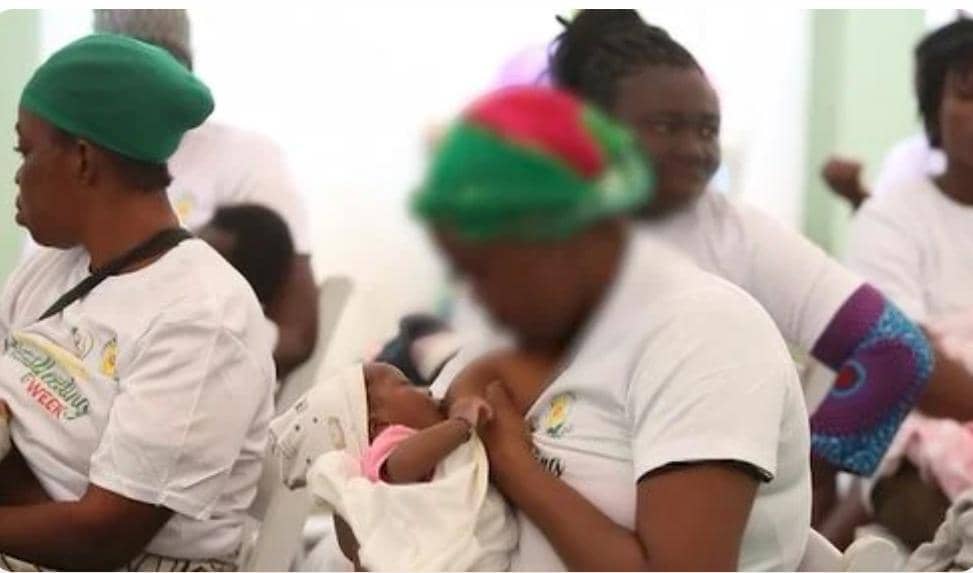The Ghana Health Service (GHS) has issued a stern warning to health institutions found promoting infant formula over breastfeeding, vowing to take disciplinary action against offenders.
Speaking at the launch of World Breastfeeding Week on Thursday, 7 August 2025, GHS Director of Family Health Division, Brightson strongly condemned the practice, citing alarming statistics that show Greater Accra has the lowest rate of exclusive breastfeeding at just 42%.
“Formula promotion in Ghanaian health facilities is a crime. It is wrong, and we will come after you. When we catch you, you will face the requisite disciplinary measures,” Brightson declared.
 He clarified that the use of infant formula is not inherently wrong but emphasized that the first six months of a baby’s life should be exclusively devoted to breastfeeding.
He clarified that the use of infant formula is not inherently wrong but emphasized that the first six months of a baby’s life should be exclusively devoted to breastfeeding.
We are not saying that it is wrong to use an infant formula in Ghana. That’s not what we are saying. We are saying that let the first six months be exclusively devoted to the baby, where the baby will benefit from all the ingredients that are necessary for proper development. Brain growth, bone growth, muscle growth, intelligence, it all depends on the breast milk.”
Advocates are urging the government to integrate breastfeeding-friendly environments in workplaces and public institutions. There is growing demand for maternity leave to be extended from three to six months to support exclusive breastfeeding.
“In formal workplaces, mothers are not given adequate maternity leave to encourage exclusive breastfeeding,” said a health advocate. “Even when they return to work, there are no suitable systems, such as lactation rooms, that allow them to breastfeed or express milk comfortably.”
UNICEF Ghana’s Nutrition Manager, Dr. Annette Imohe, highlighted that exclusive breastfeeding rates in Ghana currently stand at 53%. She pointed to cultural norms, misinformation, and lack of support as major barriers.
 Within the formal workplace, we still do not give mothers the adequate maternity leave that they need to encourage them to exclusively breastfeed, and even when they return to the workplace, there are no suitable systems that can support them, for example, lactation rooms to ensure that they can comfortably and freely breastfeed their babies or express breast milk,” she explained.
Within the formal workplace, we still do not give mothers the adequate maternity leave that they need to encourage them to exclusively breastfeed, and even when they return to the workplace, there are no suitable systems that can support them, for example, lactation rooms to ensure that they can comfortably and freely breastfeed their babies or express breast milk,” she explained.
“Within the family setup, you have lack of support from people around her within the families, which could be the spouses or relatives, mother-in-laws or grandmothers, who sometimes have contradictory knowledge or information that goes against the practice of exclusive breastfeeding. Within the community, we also have societal norms that sometimes dissuade mothers from breastfeeding or cultural myths.”
Dr. Imohe warned against the early introduction of water alongside breast milk, noting that it displaces vital nutrition.
“Breast milk is the first vaccine for a child; it contains antibodies that protect against illness. Giving water too early reduces the nutritional value of each feed, especially since infants have very small stomachs.”
Breast milk is rich in nutrients essential for an infant’s growth and development. Health experts continue to advocate for exclusive breastfeeding as a cornerstone of child health and a sustainable public health strategy.
The Ghana Health Service is calling for a nationwide effort to prioritize breastfeeding, build supportive systems, and eliminate practices that undermine maternal and child health.
Source: 3news.com


